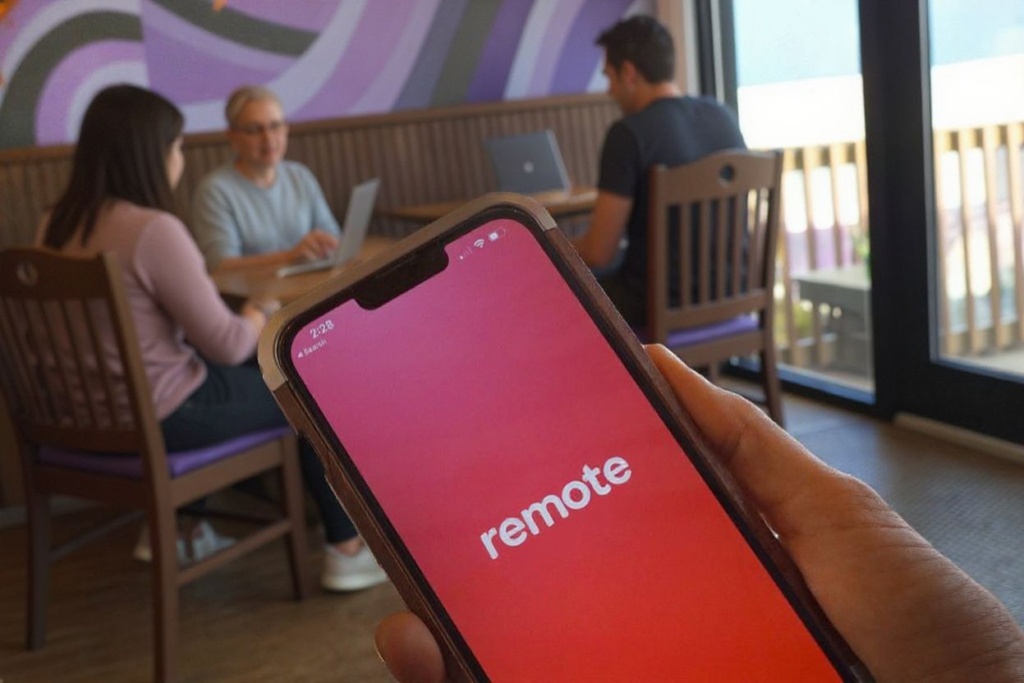
Everyone seems to be looking for genuine work-from-home opportunities these days. And why not?
There’s a reason behind the incredible rise in popularity of remote jobs among Gen Z and millennials, so it’s not surprising if people want to know more about the best remote companies to work for.
But before you start applying to any remote job, it’s important to realise what exactly you’re signing up for.
Remote jobs: Pros and cons you should know
One of the major reasons people prefer remote jobs these days is our changing values. Gen Z and millennials place a strong emphasis on work-life balance, personal fulfilment, and flexibility in their careers.
Remote work offers the opportunity to structure our work around our lives — not the other way around.
We have more control over our time and can prioritise other aspects of our lives, such as family, hobbies, and travel.
And who wouldn’t want to make the most of this opportunity by landing one of the legit online work-from-home jobs out there?
However, there’s something you should keep in mind. There are downsides to remote work, such as:
- More stress and health problems. Being unable to disconnect can cause these, with 41% of remote workers reporting feeling stressed compared to only 25% of those who continued to work in the office, according to one study.
- Worse sleep. The same study found 42% had trouble sleeping. Only 29% of office workers reported the same.
- Loneliness and isolation. This can demotivate and drive employee burnout and turnover.
- No break from screen time. Before the pandemic, IMs sent by Microsoft employees dipped during lunchtime and evenings.
- Lack of trust from managers. Most managers think workers are less productive at home.
Three years after the COVID-19 pandemic first struck, it’s clear that work no longer has to be done in office alone — but 100% remote work isn’t the answer either. Debate on the pros and cons of WFH never seems to cease either.
How did we even get here in the first place?
 Remote jobs increased during the pandemic as people were forced to stay home.
Remote jobs increased during the pandemic as people were forced to stay home.
History of remote jobs: How it all started
There are so many legit online work-from-home jobs these days that it seems incredible that there was a time when remote jobs weren’t so common.
So how did it all begin? Indeed, the history of remote jobs is pretty fascinating and actually goes way back than you expect.
The origins of remote work can be traced back to the late 20th century when advancements in technology and communication began to shape the way we work.
It started with the rise of telecommuting, a term coined by Jack Nilles in the early 1970s.
It was Nilles who envisioned a future where employees could work from home using technology to connect with their colleagues and complete their tasks.
Not surprisingly, initially, telecommuting faced scepticism and resistance from traditional work models. How could productivity not be compromised when everyone is not working from the same place?
But the world soon began to realise the possibilities.
And things changed for the better with the emergence of the internet in the 1990s. The internet provided us with the ability to connect globally and exchange information instantly. The result? Remote work became more accessible and feasible.
As the new millennium approached, remote work started gaining traction. Companies began recognising the benefits of remote jobs, including increased productivity, cost savings, and access to a larger talent pool.
The advent of video conferencing tools and collaboration platforms further facilitated remote work by bridging the gap between distance and communication.
And now, things have come to a point wherein the concept of remote jobs has become a global phenomenon.
According to a Forbes article published in June, 12.7% of full-time employees work from home.
Earlier in March, Pew Research Centre reported about a third (35%) of workers with jobs that can be done remotely are working from home all of the time.
While this is down from 43% in January 2022 and 55% in October 2020, it is up from only 7% before the pandemic.
The COVID-19 pandemic served as a key catalyst pushing companies to adopt remote work policies on a massive scale.
Suddenly, remote work became a necessity rather than a luxury.
Today, many progressive companies have embraced remote work as a long-term strategy, offering flexible work arrangements and promoting a healthy work-life balance.
 Working for the best remote companies to work for companies will allow you to move to anywhere in the world.
Working for the best remote companies to work for companies will allow you to move to anywhere in the world.
What to look out for when searching for remote jobs
We get it. It’s not easy to find the best-paying remote jobs. And we cannot deny that there are many scams out there too.
So, how do you ensure that you spend your time and effort only on genuine work-from-home opportunities?
There are a few factors you must consider. Of course, first, you must ensure that the companies you are applying to are indeed legit.
Look for reviews (Glassdoor is a good site to start with) and try to find out as much about the companies as possible.
Genuine work-from-home opportunities have well-established credibility online, and their sites usually don’t rely on stock photos only.
You must also consider the company’s remote work policies and culture. It’s best to look for organisations with:
- A proven track record of supporting remote employees and promoting a healthy work-life balance
- Emphasis on collaboration. Thye should state that they provide the necessary technology and tools for remote work
- Clear expectations, deliverables, and communication methods
- Comprehensive onboarding processes, regular check-ins, and opportunities for skill development
- Fair compensation and benefits package too. While remote work offers flexibility, it is essential to ensure you are fairly compensated for your time and skills.
Fresh graduates have to tread carefully. Yes, remote jobs can provide a unique opportunity to gain valuable professional experience while enjoying the freedom and flexibility of working from home, but you must ensure this does not come at the cost of your professional growth.
While you can work with companies from all over the world, and not just limited to your local area, know that you’ll need a high level of self-discipline and self-motivation. Without the structure of a traditional office environment, it can be challenging to stay focused and productive.
Fresh graduates may also miss out on some valuable learning experiences and mentorship opportunities that are often available in a traditional office setting.
Building relationships and networking can be more challenging in a remote work environment, which may impact long-term career growth. Before accepting an offer, make sure you make your decision after weighing all the relevant factors.

The best remote companies to work for take care of their employees who are mothers. Source: ETX
The best and worst remote jobs out there today
A big salary is important but it isn’t everything. There’s a lot more that should be considered — chief among these is whether the remote job matches your skills, passions, and expertise.
A role that allows you to use your strengths and interests will not only enhance your job satisfaction but also contribute to your professional growth and success.
Being able to advance your career, develop skills and continuously learn are other key traits of the best remote jobs out there.
However, the most significant aspect of remote work is flexibility and work-life balance. The best remote jobs are the ones that offer flexible schedules and autonomy. You can adjust your work hours to suit your personal needs and responsibilities.
Done right, this gives you healthy work-life balance, ultimately promoting overall well-being and happiness. Those who can’t strike this balance have reported that trying to work and run life errands have found remote work even more stressful that going to office.
On the other hand, the worst remote jobs are the ones that are the complete opposite. There are no clear communication, leading to isolation and a lack of guidance.
There are no clear pathways for growth and advancement either, leaving remote workers feeling stagnant in their careers.
Worst of them all are the remote jobs that demand excessive working hours or working around the clock. If your company fails to prioritise work-life balance, this can quickly lead to you feeling burnout and dissatisfied despite having a remote job.
10 best remote companies to work for
And now, we come to the most significant part of the discussion. Which are the best remote companies to work for that will not only offer you a handsome package but also much-needed flexibility? Let’s take a look!
1. Hubspot
If you are looking for the best-paying remote jobs, Hubspot can be a good option. One of the reasons that employees love working here is the hybrid working model. They have flexible work options, including offer work wherein you have to come into the office three or more days in a week, or a more flexible arrangement which requires you to come into the office two days or fewer, and 100% remote.
There are positions like product designer and corporate accountant available here. Around 63.4% of employees at Hubspot work from home, while 8.3% work in the office. Nearly 28.3% of employees have opted for the flexible model.
One problem with working at Hubspot is that there’s a great deal of pressure to make as many sales as possible, irrespective of the quota. This can get pretty challenging at times.

One of the best remote companies to work for is Reddit, a key industry figure with many work-from-home opportunities. Source: ETX
2. Reddit
It’s not surprising that a company belonging to the social media industry would offer genuine work-from-home opportunities. People can apply for positions like designer manager and commerce manager.
The company switched to a permanent hybrid model back in 2020. So employees now have the flexibility to work from wherever they want (with lots of “office swag” sent).
While this is a perk mentioned in several Glassdoor reviews, those claiming to be employees also allege poor work-life balance and poor culture, with one reviewer stating: “Culture has take a big plunge. Not transparent and highly unorganised.”

Spotify, one of the best remote companies to work for, offer part-time, freelance, temporary, hybrid and remote opportunities.
3. Spotify
Spotify launched a work-from-anywhere programme in 2021. Since the launch of the programme, about 2% of the company’s total workforce has chosen to work remotely. And this programme has done wonders for Spotify’s turnover.
People love working here due to the flexibility. However, the workload can get a tad bit too much at times, and the lack of guidance in a remote setting can be a problem.
4. Airbnb
The company introduced the live and work anywhere model in April 2022. You can apply for positions like economist and legal counsel here. And you also can choose to work for up to three months a year from over 170 countries.
However, keep in mind that the company has the tendency to change its policy without prior notification, which can be troublesome for employees.
5. Dropbox
Nearly 90% of the employees at Dropbox work remotely. They are only required to come to the office occasionally. There are positions like senior mobile software engineer and Strategic sourcing associate here.
How you progress at the company, however, depends a lot on the manager that you get there. Some of them have allegedly hindered the professional growth of those reporting to them.
6. Allstate Insurance
This is another place that allows employees to choose whether they prefer working from home, office, or a combination of both. You can apply for various positions like Medicare benefit advisor and Marketing analytics lead.
Around 99% of its employees opt to work remotely or go for the hybrid model. The only problem about working here is the limited growth potential. Things can get stagnant after a point.
7. Pinterest
Employees at Pinterest have the option to work in all 50 states within the US. They are asked to visit the office once a year to ensure culture building.
And full-time employees who have been a part of the company for at least six months can work from outside the country for up to nine months each year.
There are many interesting positions here, like Product analyst and data scientist. The company is open to everyone, as long as you are willing to bear the hectic workload.
8. Instacart
Around 70% of the employees at this place can choose to work from home or go for the hybrid model. The employees have the freedom to work from anywhere within the country too.
Of course, there are a few exceptions, so you need to make sure that the position you are applying for is indeed remote.
Some remote job opportunities include staff product designer and commercial counsel.
 Yelp is one of the best remote companies to work for because it allows employees to regain time to spend on things like childcare or personal hobbies.
Yelp is one of the best remote companies to work for because it allows employees to regain time to spend on things like childcare or personal hobbies.
9. Yelp
Yelp adopted the permanent remote model policy in 2022. Employees can now work up to 90 days from another location in positions like user operations associate and partner account executive.
However, one problem with this place is that it is said to give a strong emphasis on numbers instead of quality.
10. Verizon
This company also gives its employees the freedom to choose to work from home or in a hybrid arrangement. They have no mandate about how often you need to come to the office.
Unfortunately, this means that there’s no workplace culture bonding and limited network opportunities here.










